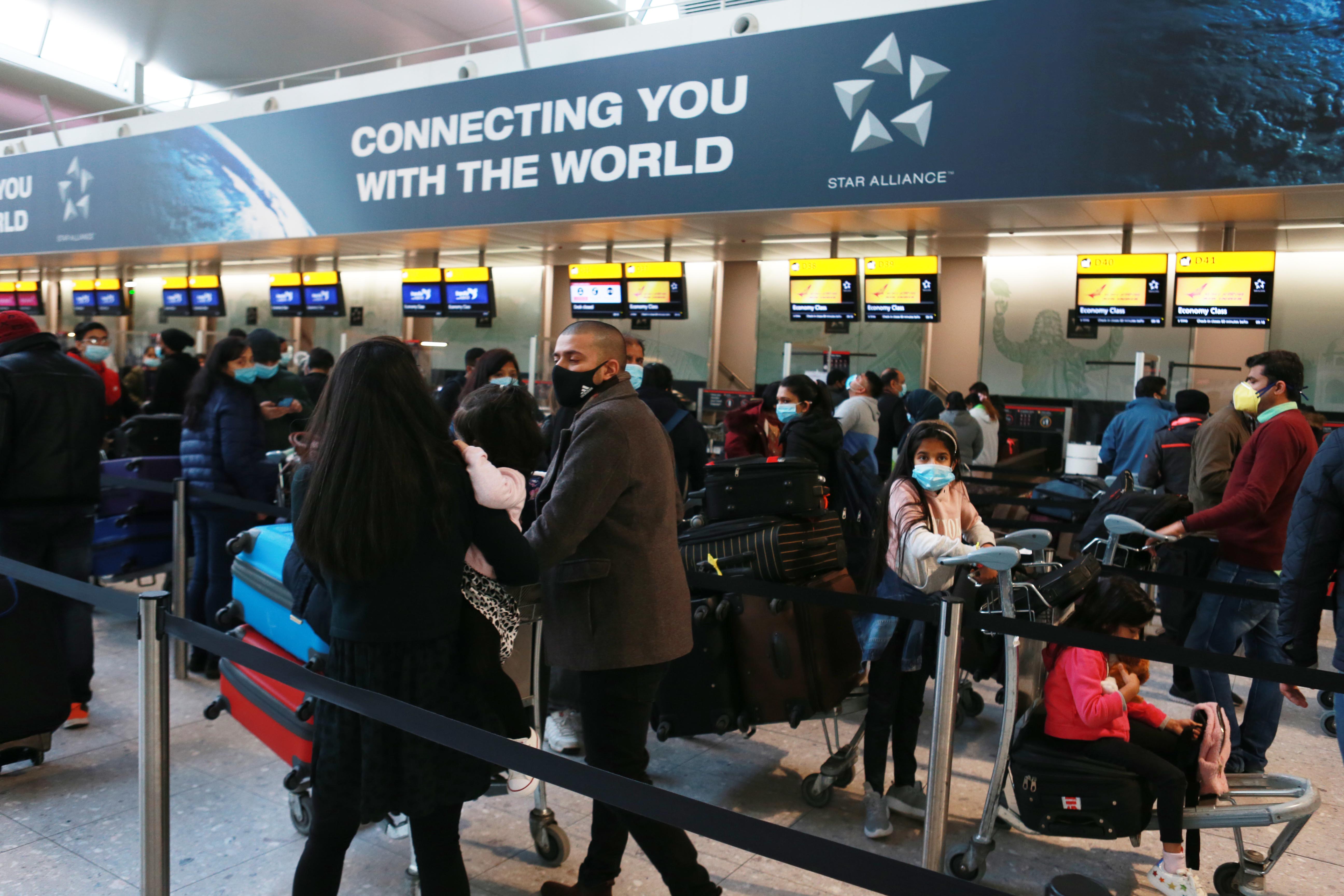The government’s handling of airport quarantine has been a shambles – and it has not even started yet
Editorial: Ministers’ lack of clarity about Monday’s quarantine plans is undermining confidence in border controls

The government has been so slow and careless about setting up a system of airport hotel quarantine that it must be suspected that ministers see it as a trial run. It is as if they want to create the system, knowing that it will not work well, but think it can then be improved and deployed more rigorously if needed.
Indeed, many of the government’s scientific advisers seem relatively relaxed about the threat of new variants of coronavirus coming into the UK from abroad. Professor Jonathan Van-Tam, England’s deputy chief medical officer, said last week that the South African variant was unlikely to become dominant here because our own “Kent variant” already has a transmissibility advantage. And most of the evidence is that vaccines are still effective against variants, even if they might be less so.
So it may be that ministers see the quarantine system as a back-up, to be used if a variant emerges, somewhere in the world, that is significantly more deadly or more vaccine-resistant. That seems the most charitable explanation for the lackadaisical way in which the new quarantine rules have been brought in.
The South African variant was identified more than a month ago, for example, and yet the quarantine arrangements do not take effect until Monday. As we report today, the company that runs Heathrow airport said that “significant gaps still remain” in the system, while border officials had not yet been briefed on how it would work.
Contrast this with the approach of the Australian government, which introduced an airport quarantine system overnight on 27 March last year, as Simon Calder, our travel correspondent, writes. The Australian quarantine was a huge logistical challenge – and indeed it suffered from a series of embarrassing problems, including that of security guards fraternising with travellers – but it was brought in quickly and seems to have been effective in helping to keep the original virus under control.
Of course, we understand that the UK system is not intended to prevent “ordinary” coronavirus from coming here. The scientific consensus is that international arrivals make a negligible contribution when the virus is already endemic in a society. The purpose of this new quarantine system is to prevent the arrival of potentially more dangerous variants.
Yet the government has never been explicit about how it intends to do this. Clearly, requiring arrivals from a “red list” of countries to quarantine is not a secure defence against new variants. For one thing, there is a long list of exempted occupations that do not require isolation in an airport hotel. For another, people can travel via non-red-list countries, and trying to detect them is difficult – as the government has implicitly admitted by its draconian threat of 10-year jail sentences for failing to disclose travel from a red-list country.
If ministers hope that the quarantine system is merely “good enough” as a precaution, and that it can be tightened up later if a serious threat emerges, then they should say so. As it is, they have ended up with the worst of all worlds: a half-hearted system introduced late that is likely to lead to confusion and embarrassment on Monday, which will undermine confidence in our border controls.
Join our commenting forum
Join thought-provoking conversations, follow other Independent readers and see their replies
Comments


Bookmark popover
Removed from bookmarks